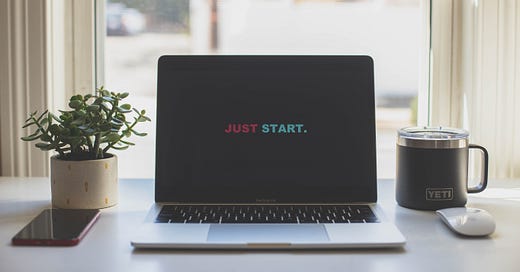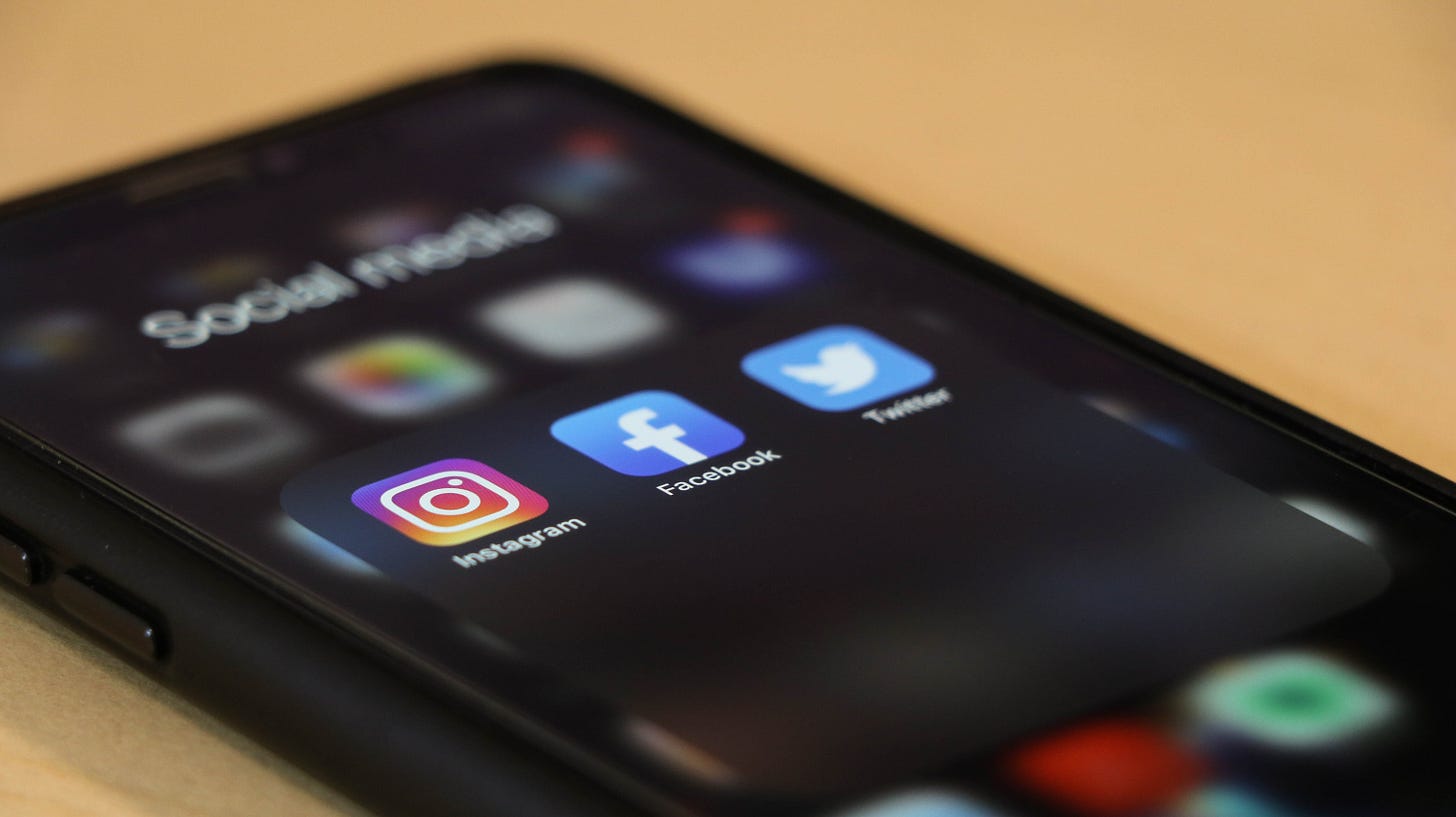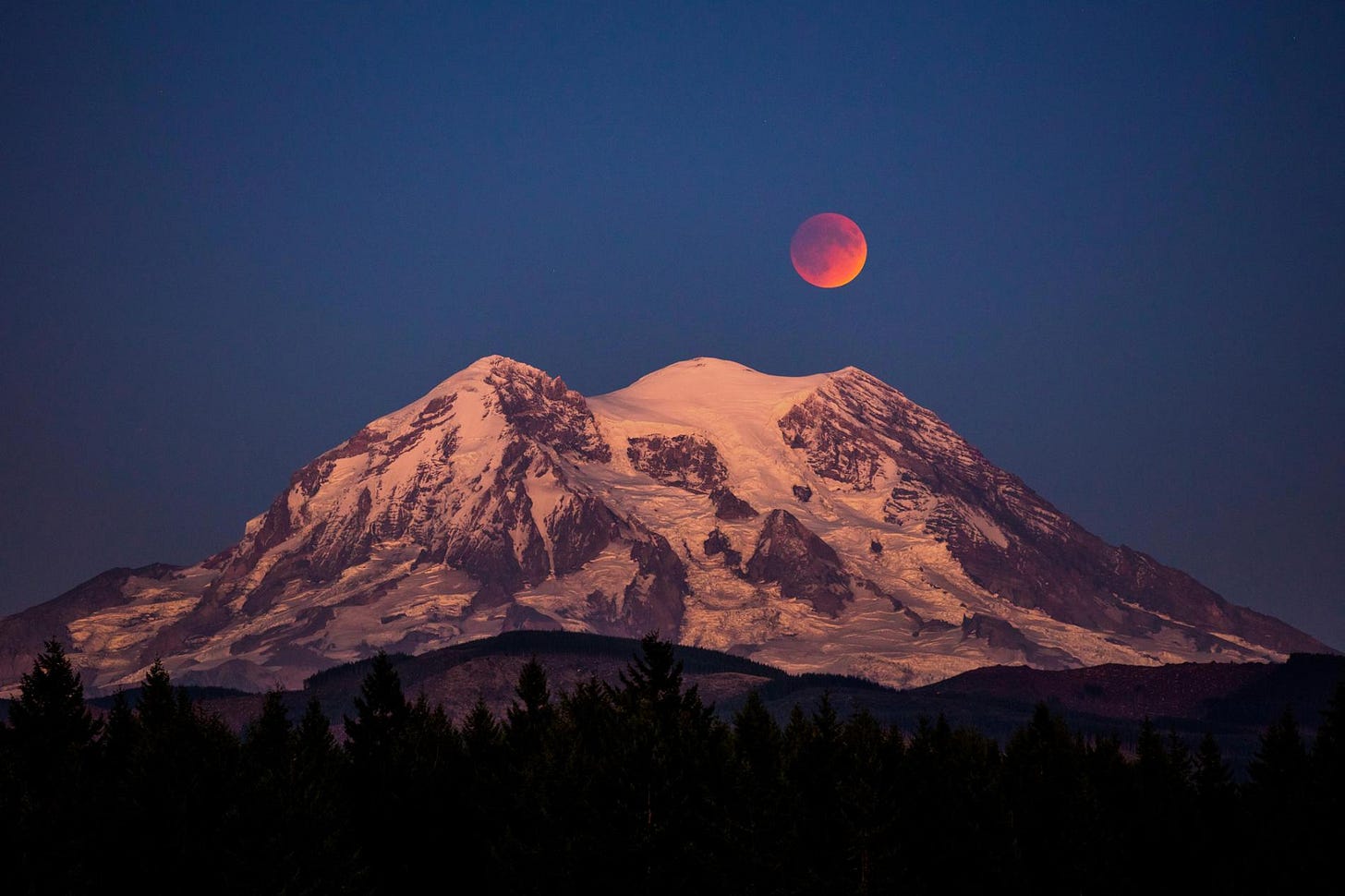The Fresh Start Effect.
Temporal Landmarks Motivate Aspirational Behavior. The popularity of New Year’s resolutions suggests that people are more likely to tackle their goals immediately following salient temporal landmarks.
My Dear Friends
How have you been? January is about to end in a week! You must have received one of those WhatsApp forwards this week, “Today is the 21st day of the 21st year of the 21st century”, lame, I know but also a painful reminder of how quickly time is passing!
January is a very weird time, transitioning from one year to another, prioritising projects, making vision boards, and planning obsessively. And though I was doing all these, I was also reading a lot of articles and blogs online mainly to understand the changing trends and get an understanding of what to expect in 2021. So here are some of the articles which I liked, some of these are niche some are not.
First, let’s start with an article that addresses the overwhelming situation most of us are finding ourselves in. This pressure to start anew is not something unique.
“Humans are obsessed with the idea of a fresh start. The fresh start effect, as it has come to be known, is when people disassociate past events and performances from current ones. Thus, temporal landmarks — days that appear to be more meaningful than the others, such as a birthday or January 1 — act as a kind of mental reset button to help get us back on track and focused on our goals. They demarcate the passage of time and create new mental accounting periods, which relegate past imperfections to a previous period, induce people to take a big-picture view of their lives, and motivate aspirational behaviours. By making us feel more distant from our past failures, such dates seem to appear more effective in driving change.”
If you are new to this newsletter, why not consider subscribing to it? You can take a monthly or yearly plan or even consider subscribing for the free plan!
We tend to overburden ourselves with self-set goals and expectations, we start running a race when there is none. We make our lives more complicated than it needs to be because of how we perceive our work and life. And therefore I want you to watch this video, though it is an old one it really gives you a perspective about what most of us do wrong.
"We live in a constant state of unease and anxiety, feeling like there is always more to do and more to worry about. We stress about our to-do lists, even though no matter how many items pop up, more will take their place. We feel like we can’t relax and be happy until we have achieved certain goals, but when we get what we want, we just want something else."
Life seems to be in constant flux, I know this feeling, this never-ending hustle towards one goal after another. We are emotionally exhausted and more often than not find ourselves restless. This article talks about how we can overcome most of our emotional hurdles by harnessing better reactions to the situations we are flung into. Equanimity teaches us to be calm and composed in difficult situations and manage our expectations and reactions in a way that helps us lead a happier life.
"Similar stress-buffering effects of meaning have been found in research using functional MRI scans, which found that when people who report having a high level of purpose are shown disturbingly negative images, such as those of plane crashes and burned cars, their brain’s fear center, the amygdala, doesn’t activate as much as it does in people who report lower sense of purpose."
Living a long healthy life is something all of us hope for, but most of us don't follow the lifestyle required to be happy and healthy. This article talks about longevity and Ikigai and how having a purpose and direction in your life can help you lead a more peaceful life.
"Confronting the entire brevity of your situation is instrumental for success. There's a bit of positive visualisation in there, but it needs to be counterbalanced with the thought that you can utterly fail, and to put it frankly – your current existence might be absolutely miserable and hopeless. But don't lose faith, your wildest dreams just might come true. . . hence the paradox."
This article talks about the Stockdale Paradox, the idea of hoping for the best and yet preparing for the worst. This is something we already know and have heard quite a few times in our lives, but this article explores the complexity behind the paradox and its significance in daily lives.
“The banning of Trump and others from Twitter and Facebook, and the shutdown of Parler made clear that the power to silence voices, whether of the one or of millions, lies with just three men on the planet – Mark Zuckerberg of Facebook, Jack Dorsey of Twitter, and Jeff Bezos of Amazon. No wonder defending democracy will be a huge and unenviable task for President Biden’s team.”
Social media is the single most powerful tool on the Earth today, it’s even more crucial than armies or navies. It can incite violence or restore peace in a matter of tweets or videos. And political leaders all around the World are well aware of this fact, and as Miller says in this article, political leaders have “capitalised” social media. She illustrates examples from the recent past, about the strategic use of social media by diplomats and how it is shaping world politics and international relations around us.
“Often, adherence to neutrality only enforces existing power structures,”
The talk about social media and censorship goes hand in hand today. We as Indians, already know the circus that’s going on, the continuous attacks on artists and web shows, and the subsequent censorship. But this trend of censorship is not exclusive to India, content platforms like Spotify, Substack, and others are soon likely to fall prey to regulations and guidelines which curtails the creative freedom of individual creators.
“Though the big social networks have been the main focus in the debate over how — and whether — online platforms should moderate user content, the fight is migrating toward smaller platforms devoid of rollicking social feeds. They include email providers like Substack, podcast platforms like Spotify (hello Joe Rogan), and nascent startups like Clubhouse.”
But the debate is not so straightforward, it’s not about creators vs corporates or freedom vs censorship, as mentioned earlier social media is a big powerful tool and with great power comes great responsibility, this article captures the complexity of censorship in detail.
“As the larger platforms set their terms, those for and against their rules broke into two sides: One for unfettered speech, another for thoughtful moderation.”
The content needs to be moderated so that it does not violate democracy or human rights or so that there is no spread of misinformation. But again who gets to decide what is suppression of freedom of speech and what is upholding democracy?
“When Spotify started paying Rogan, some of its employees asked the company’s management to remove the popular podcaster’s episodes on which he expresses controversial statements about the trans community. Spotify is a platform, open for anyone to upload to its service as long as they follow its loose guidelines, which ban content that is “offensive, abusive, defamatory, pornographic, threatening, obscene, or advocates or incites violence.” Employees viewed the money going to Rogan as an endorsement, however, and demanded more discretion.”
Have you heard of the term “Digital Divide”, well it is fast becoming a thing of the past. The majority of Indians today have access to the internet and are an active part of the growing consumer market in India. Creators have the golden opportunity to build up their audiences and scale up their content across mediums and platforms. As the internet has been democratised, we are also witnessing a massive inflow of creators, who are taking baby steps towards making their mark in the creative economy.
“The telecom revolution in India is an unparalleled success story. From a tele-density of 2% in 1995 to 12% in 2005 to over 90% in 2020, things have come a long way. India today has over 500 million active internet users, who consume the highest volume of data in the world (average of 25GB per month) and pay the lowest rates in the world (average price of $0.30 per GB vs $8 in the US). This massive rise in the use of the mobile internet helped lay the foundation for many businesses, besides delivering governance efficiently.”
This article also talks about the new challenges that the citizens of India are facing with the advent of the internet, and how their experiences will be shaped by government policies and giant media techs.
“India’s consumer internet is dominated by American Big Tech. This has implications for freedom of expression because its content rules and broader policy determinations will determine our online public squares. Repeated offences on data breaches and sharing of data between platforms have been ignored — in the absence of a regulator.”
Artists throughout the world, and especially in India, turned the crisis into an opportunity and created art that is not only creatively inspiring but also a source of hope in distressing times. We often fail to recognise these artists and their work but I am so glad I stumbled upon this article that helped me explore the works of many unknown artists and also sparked an interest in the museum culture in India. The most beautiful part about this article is it focuses on 5 Indian creators and captures their brilliance in the most authentic sense.
“In many ways, what one saw was a testament to our times, where questions about mortality permeate mundane discussions and the anxieties of isolation are only just becoming more bearable from behind masks. The state of prolonged uncertainty and a break from routine appears to have prompted the artists to reflect deeply on issues that matter to them. In this unique state of fluidity, anchored by shared concerns, such as for the environment, the large and imposing artworks speak their mind without inhibition – with the themes of hope and despair, nature and human construction/activity, convergences and contradictions dealt with differently by each of the five artists.”
Most of us aren't happy in our workspaces even though we are pursuing our passion and following our hearts. Why is it that we fail to be happy and content in our careers? What is it that we are doing wrong? And how can we change that?
This article answers all these questions for you.
"Most people assume that work satisfaction is primarily about what we do. But more often than not, it’s also related to how we do it. If you approach work with a presumption that things should be different than they already are, you’re arguing with reality."
Ankur Warikoo recently said that Time management is not about managing time, it is actually about managing energy. And this is the most accurate thing ever. Read this article which explores the same idea.
"On top of that, we allow ourselves to be constantly distracted by notifications, which waste enormous amounts of time. As a result, our to-do lists grow and the window of time available to get stuff done shrinks.
In reality, a lack of time is not why we fail to do what we intend to do."
Marques Brownlee is a YouTuber with 13.5M + subscribers, he started his journey in 2009 and his journey has been phenomenal. In this interview, Marques talks about everything related to his craft, his creative and entrepreneurial decisions, how YouTube works. The conversation is very interesting and if you are a creator you should surely give it a read because it delves deep into the whole mechanics of the content world.
"Because we’re on YouTube, it’s a little bit driven by the platform. Honestly, a lot of it is tracking metrics and viewer retention and making sure you can quantitatively confirm the quality of a video. We’ve never really set view count goals, but we did have a goal to make 100 videos in the calendar year and we did end up doing that, which is great. A lot of that stuff that we’re aiming for is more, I guess qualitative is the word, but it’s hard to define. We watch stuff and we’re inspired by things we watch off of the platform."
"A blah block is having an urgent deadline coming up but not having the motivation to write. It’s knowing exactly what you want to say, but not being able to convince your brain to get the words out. It’s finding no word to describe your creative struggle other than “blah.”
I came across the word, blah block for the first time in this article, and it made perfect sense to me. As a creator, I have often faced this and I know many fellow creators do. The article provides you with 3 simple anecdotes, refuel; reflect; rewire to combat the problem.
Also, watch this small video about how to generate new ideas.
If you were awestruck by the Saturn- Jupiter conjunction recently, then mark your calendar and get ready for the Venus-Jupiter conjunction on the 11th of February. If you have a passion for starry skies and black horizons then this article is going to be your favorite.
"Despite a year filled with lockdowns and social isolation, the starry skies of 2020 gave us solace and enthralled us with a parade of eye-catching celestial events. The astronomical calendar this past year was packed full of memorable sights, including the surprise appearance of the bright comet NEOWISE, the decade’s best views of Mars, a Halloween blue moon"
Now for the last suggestion, I have a movie recommendation for you. I recently watched "Bene Brown: The Call to Courage" on Netflix, it's a documentary in which Bene talks about vulnerability and how it is ingrained with courage in our lives. And how we can never fully love or live if we don't embrace vulnerability in its raw scary form. If you don't have the time to watch the full movie then watch this Ted Talk by her.
If you are new to this newsletter, why not consider subscribing to it? You can take a monthly or yearly plan or even consider subscribing for the free plan!






